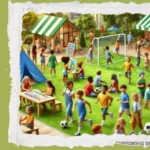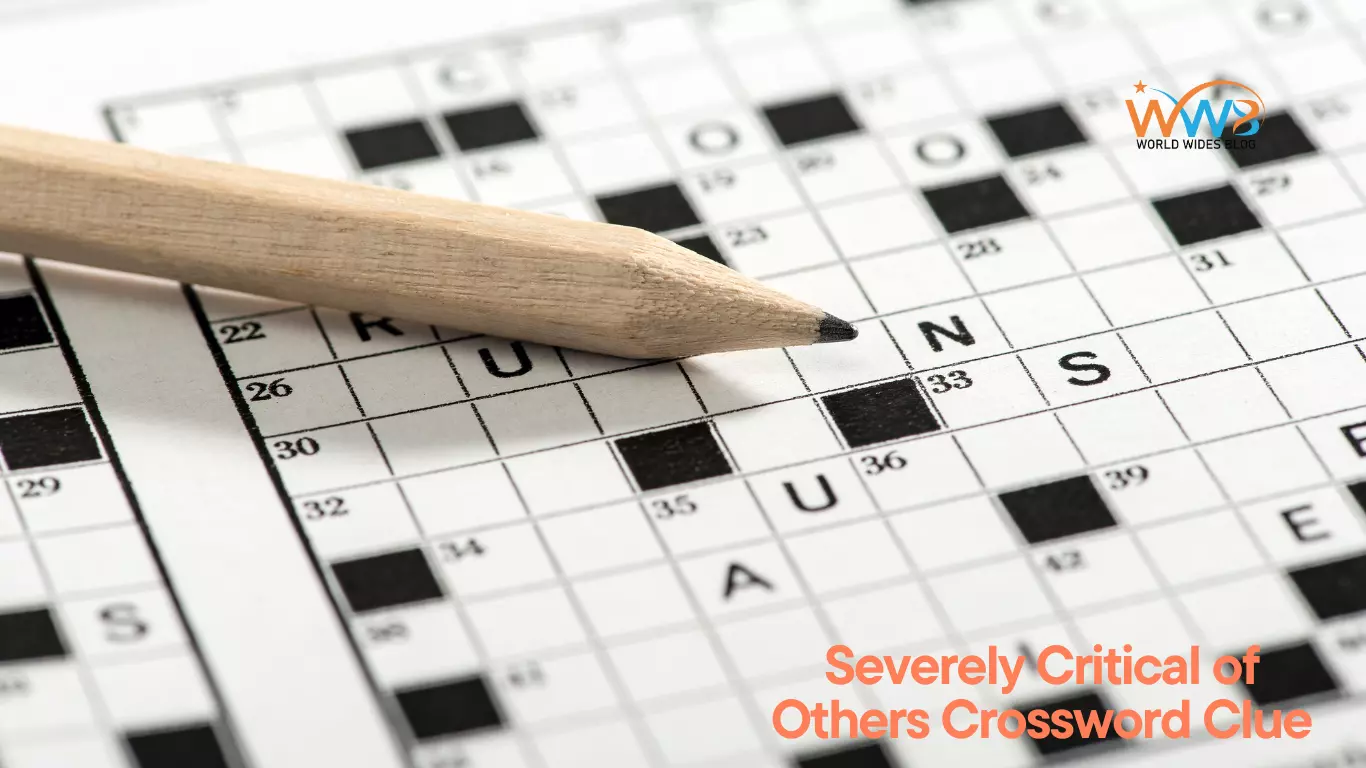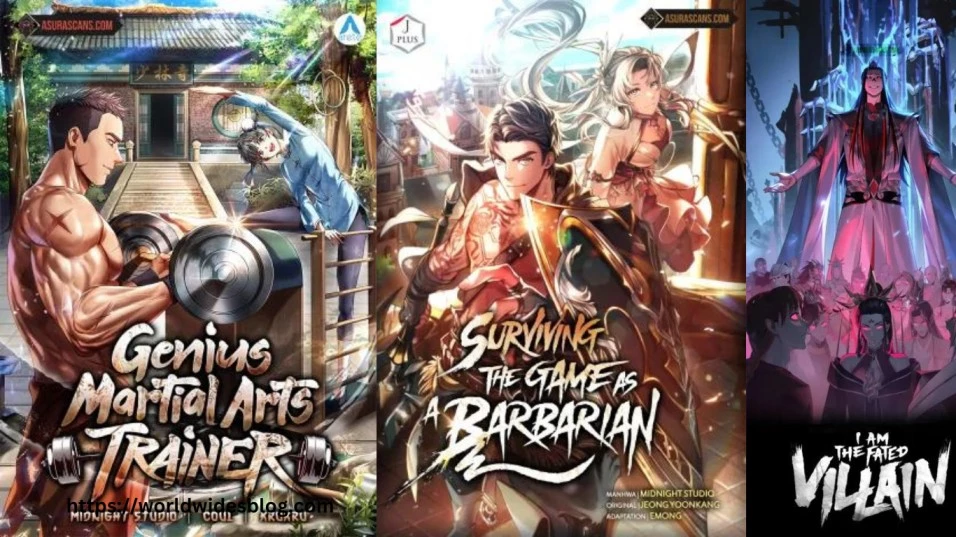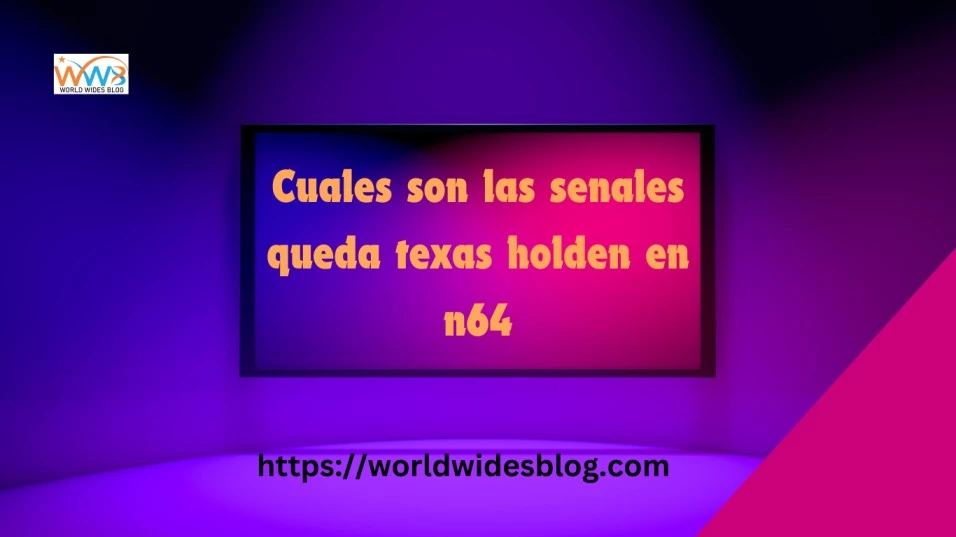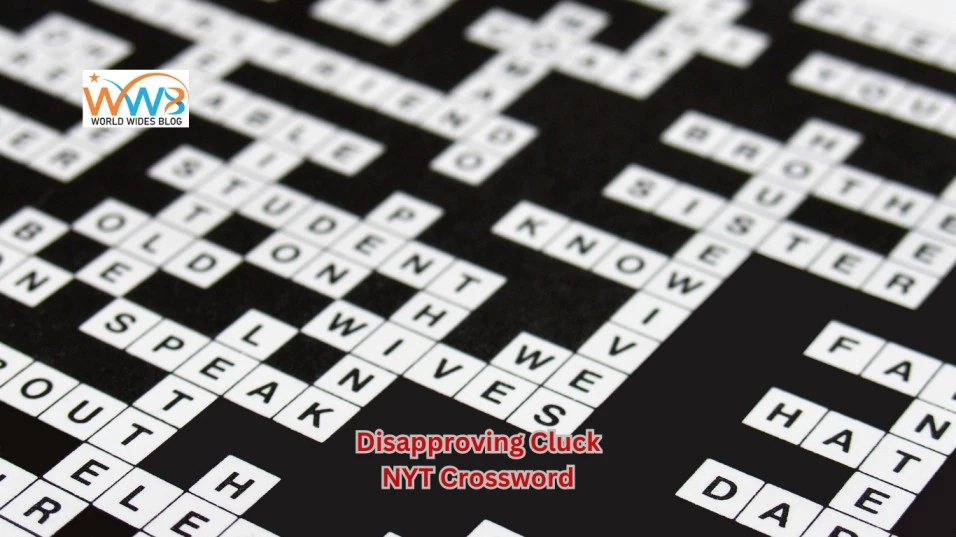Many people love doing crossword puzzles. They are fun and challenging. But what makes a crossword clue genuinely engaging? Often, cleverness and subtle hints are embedded within the clues. One intriguing clue that usually baffles solvers is the Severely Critical of Others Crossword Clue. Let’s delve into this clue, explore its meanings, and uncover the answers it might lead to.
Understanding Crossword Clues
Crossword clues are crafted precisely and often contain multiple layers of meaning. They can be easy or hard, and some require creative thinking. The beauty of crosswords lies in these cleverly constructed clues, which affect your vocabulary and lateral thinking skills.
The Fascination with Crossword Puzzles
Why do people love crossword puzzles so much? It could be the satisfaction of cracking a tough clue or learning new words. For some, it’s a daily ritual that keeps their minds sharp. Crossword puzzles are not just games but mental exercises that uniquely engage the brain.
Common Types of Crossword Clues
To solve the “Severely Critical of Others crossword clue, it’s good to know the types of crossword clues. Here is a quick guide:
Straight Clues
- They are direct and often literal. They describe the answer straightforwardly without any wordplay.
Cryptic Clues
- Cryptic clues are more challenging. They often contain an anagram, a pun, or a double meaning, and solvers must interpret them differently to arrive at the answer.
Double Meaning Clues
- These clues play on words with multiple meanings, leading to an answer that fits both interpretations.
The Concept of Being Severely Critical
Definition and Context
Being Severely Critical of Others Crossword Clue refers to a style of critique that is particularly harsh, unforgiving, or scathing. It involves pointing out flaws, mistakes, or deficiencies in an often blunt and uncompromising manner.
This type of criticism can be seen in various contexts, such as literary reviews, art critiques, personal feedback, or public commentary. The tone is usually direct and sometimes harsh, focusing more on the negative aspects rather than offering constructive suggestions.
For example, a Severely Critical of Others Crossword Clue movie critic might focus extensively on a film’s flaws, such as poor acting or a weak script, without balancing the review with positive aspects. This kind of criticism can help highlight areas that need improvement but can also be discouraging if not delivered thoughtfully.
Synonyms and Related Terms
Several words and phrases are synonymous with or related to being severely critical. These include:
- Scathing: This term describes criticism that is highly harsh or severe. For example, a scathing review would leave little doubt about the critic’s negative opinion.
- Censorious: This word refers to someone habitually critical, often finding fault with others harshly.
- Caustic: Caustic remarks are biting and sarcastic, often delivered in a way that can sting or offend.
- Vitriolic: This term describes criticism filled with bitter and venomous language.
- Acerbic: Acerbic comments are sharp and direct, often carrying a bitter or cutting tone.
- Trenchant: While not consistently negative, trenchant criticism is characterized by its sharpness and incisiveness. It often highlights flaws clearly and effectively.
These synonyms all convey a similar idea of harsh or severe judgment, often delivered in a way that can be perceived as overly harsh or unsympathetic. Understanding these terms can help interpret crossword clues or comprehend various forms of criticism in everyday contexts.
Analyzing the Clue: ‘Severely Critical of Others’
Breaking Down the Clue
When approaching the crossword clue “Severely Critical of Others Crossword Clue,” it’s essential to dissect its components to understand what it’s asking. The phrase “severely critical” suggests high criticism, while “of others” indicates that the focus is on judgment directed towards others rather than oneself.
In crosswords, clues like this can point to words that describe someone who habitually criticizes others, often in a harsh or unforgiving way. The key to solving such a clue lies in understanding the intensity and nature of the criticism implied.
Identifying Keywords
To solve this clue, identifying the critical keywords is essential:
- “Severely”: This word shows how strong the criticism is. It means more than mild or moderate disapproval. It points to something harsher.
- “Critical” suggests an evaluative aspect, where the subject is judged or assessed, often highlighting flaws or weaknesses.
- “Of others”: This phrase clarifies that the criticism is directed outwardly, focusing on other people rather than on self-criticism.
Combining these elements, we look for terms that encapsulate harsh judgment towards others. Words like “censorious,” “scathing,” or “vitriolic” come to mind. Each of these words conveys a sense of severe criticism or harsh judgment, making them likely candidates for the crossword answer. By focusing on the intensity and target of the criticism, solvers can narrow down the possibilities and find the most fitting answer.
Possible Answers to the Clue
With the clue “Severely Critical of Others Crossword Clue,” several answers come to mind, each fitting different crossword contexts.
Exploring Common Answers
- Scathing: This word often describes a harsh and cutting critique.
- Censorious means someone who always finds faults and criticizes too much.
Unusual and Rare Answers
Sometimes, crossword creators use less common words to add an extra layer of challenge. Words like “vitriolic” or “trenchant” can also fit the clue.
The Role of Tone in Crossword Clues
Tone plays a crucial role in crossword clues, as it helps guide solvers towards the correct answer. The tone can be severe, humorous, sarcastic, or playful, and understanding it can provide valuable hints about the nature of the answer.
Understanding the Tone of Clues
To understand the tone of a crossword clue, solvers must pay close attention to the wording and style used. The tone can be subtle and may need careful interpretation of the clue.
- Serious Tone: Clues with a severe tone are typically straightforward and aim to provide direct guidance towards the answer. For example, a clue like “Capital of France” straightforwardly points to “Paris.”
- Humorous or Playful Tone: These clues often use puns or jokes. For example, “One who steals a drink?” might be answered with “Thief” because it emphasizes taking a ‘sip.’
- Sarcastic or Ironical Tone: Clues with a snarky or ironic tone might use surprising words. For example, “Big deal?” might mean something small, hinting at the answer “Trivial.”
- Cryptic Tone: In cryptic crosswords, tone plays an even more significant role, as it can disguise the true meaning. A cryptic clue might involve wordplay, anagrams, or double meanings, requiring solvers to think beyond the literal interpretation.
How Tone Influences Interpretation
The tone of a clue significantly influences how a solver interprets it, guiding them toward the type of answer expected:
- Literal vs. Figurative Interpretation: A severe tone usually suggests a literal interpretation, while a playful or humorous tone might imply a figurative or pun-based answer.
- Complexity: The tone can also hint at the complexity of the answer. A simple, direct tone often points to a straightforward answer, whereas a complex or cryptic tone might suggest an answer involving wordplay or multiple layers of meaning.
- Emotional Connotation: The emotional tone can guide solvers toward answers that carry a similar emotional weight. For instance, a harsh or harmful tone might suggest answers like “scathing” or “caustic,” while a lighthearted tone might lead to words like “joke” or “jest.”
- Cultural or Contextual Clues: Sometimes, the tone can provide cultural or contextual hints. For example, a clue with a humorous tone might reference a well-known joke or cultural phenomenon, guiding the solver to think along those lines.
The Influence of Culture and Language
Crossword puzzles often reflect cultural and linguistic nuances. Understanding these can be crucial in solving clues.
- Cultural References in Crossword Clues
References to specific cultural figures or historical events hint at the intended answer.
- Language Nuances and Their Impact
Words may carry different connotations in various cultures or contexts. Being aware of these nuances can be a big help in solving puzzles.
Strategies for Solving Crossword Puzzles
Whether you’re new to crossword puzzles or a seasoned solver, having effective strategies can make the process more enjoyable and successful. Here’s a breakdown of tips for beginners and advanced techniques for experts.
Tips for Beginners
- Start with the Easy Clues: Begin by filling in the straightforward clues. These are usually the definitions that you are confident about. This can help you gain momentum and fill in some letters, making solving other clues easier.
- Look for Fill-in-the-Blank Clues: These are often simpler because they provide a clear context for the answer. For example, a clue like “___ and butter” will likely be “bread.”
- Use Cross-Letter Hints: Once you fill in some answers, use the letters you have to help solve the intersecting clues. This cross-referencing can often provide hints for more complex clues.
- Focus on Common Patterns: Attention to common letter combinations and word patterns. For instance, knowing that “ING” often ends many words can help with more extended answers.
- Keep a Dictionary Handy: If you’re stuck, use a dictionary to check for words that fit the given letters and clues. Many crossword solvers use thesauruses as well to find synonyms.
- Pay Attention to Clue Types: Recognize the difference between straightforward definitions and those that use wordplay. Understanding these types will help you approach the clues more effectively.
- Practice Regularly: Solving crosswords gets easier with practice. Try to solve puzzles regularly to enhance your ability to recognize patterns and solve strategies.
Advanced Techniques for Experts
- Master Cryptic Clues: Understanding common types of wordplay is essential for those tackling cryptic crosswords. Familiarize yourself with anagrams, hidden words, homophones, and double meanings to decode these more complex clues.
- Use Grid Patterns: Look for patterns in the grid, such as frequently occurring letter combinations or specific placements that may help with longer words or tricky clues.
- Analyze Letter Frequencies: Advanced solvers often use knowledge of letter frequencies in English. For example, letters like E, T, and A are commonly used so that they appear frequently in the puzzle.
- Understand Crossword Themes: Many puzzles have themes that can give hints about the answers. Identify any theme and use it to make educated guesses about themed clues.
- Study Common Abbreviations and Symbols: Familiarize yourself with standard crossword abbreviations and symbols. For instance, “A.M.” is often abbreviated as “AM,” and “North” might be abbreviated as “N.”
- Employ Advanced Wordplay: Use knowledge of wordplay techniques like reversing letters, spoonerisms (swapping initial sounds), and more intricate puzzles to solve challenging clues.
- Practice Solving Under Time Constraints: Practice solving puzzles within a set time limit for a real challenge. This helps improve speed and efficiency.
- Use Crossword Solver Tools: Various online tools and apps can assist in solving difficult clues. These tools can help when you’re stuck but try to use them sparingly to keep up with the challenge and fun of solving puzzles yourself.
The Joy of Discovering New Words
Learning new words and phrases is one of the most rewarding aspects of crossword puzzles.
- Learning Vocabulary Through Crosswords
- Crosswords can introduce you to words you might not encounter in everyday life, expanding your vocabulary in a fun and engaging way.
- The Educational Value of Puzzles
- Puzzles are entertainment and educational tools that enhance language skills and cultural knowledge.
- The Community of Crossword Enthusiasts
- Crossword solving can be a social activity, with many enthusiasts gathering online or in-person to discuss and solve puzzles together.
- Online Forums and Discussion Groups
- There are numerous forums and social media groups where you can share your love for crosswords and seek help with challenging clues.
- Crossword Competitions and Events
- Competitions and events offer a chance to test your skills against others and learn new strategies.
The Evolution of Crossword Puzzles
Crossword puzzles have come a long way, from their humble beginnings in print to their current digital formats.
- From Print to Digital
The transition to digital platforms has made crosswords more accessible and diverse.
- The Future of Crossword Puzzles
We can expect more innovative and interactive ways to enjoy crossword puzzles as technology advances.
The Psychology Behind Crossword Puzzles
What drives people to solve crossword puzzles is a combination of curiosity, satisfaction, and the thrill of the challenge.
- Why People Love Crossword Puzzles
Solving puzzles can be very fun. It gives a strong feeling of success and satisfaction.
- The Cognitive Benefits of Puzzles
Crossword puzzles help you remember things better, solve problems more efficiently, and make your brain work better.
Fun Facts About Crossword Puzzles
Crossword puzzles have a rich history filled with interesting facts and trivia.
- Historical Tidbits
The first known crossword puzzle was published in 1913 by Arthur Wynne in the New York World.
- World Records and Trivia
The most giant crossword puzzle ever created contained over 91,000 squares and was completed in 2011.
Creating Your Crossword Puzzles
Making crossword puzzles can be fun and rewarding. Whether crafting puzzles for personal enjoyment or to share with others, following some essential tips and utilizing the right tools can make the process smoother and more enjoyable.
Tips for Aspiring Crossword Creators
- Start with a Theme: A clear theme can make your puzzle more engaging and cohesive. These ideas could include a holiday, a specific topic like movies or geography, or even a pun.
- Create a Grid: Begin with a grid of the desired size. Standard crossword grids are usually 15×15 for daily puzzles and 21×21 for Sunday puzzles, but you can choose any size that suits your needs.
- Design the Grid: Fill in the grid with words that fit your theme. Start with longer words and work your way to shorter ones. Ensure that words intersect correctly and form a proper crossword pattern.
- Write Clues: Craft clues that match the difficulty level you’re aiming for. Keep straightforward clues simple and direct. For more challenging clues, use wordplay, puns, or cryptic elements.
- Check for Symmetry: Most standard crossword puzzles have a 180-degree rotational symmetry. This means that if you rotate the puzzle 180 degrees, the black-and-white square pattern remains unchanged. While not a strict rule, symmetry adds a professional touch.
- Test Your Puzzle: Solve your puzzle yourself to ensure that all clues are accurate and that the puzzle is enjoyable. Having someone else test it can also help identify any issues you might have missed.
- Revise and Edit: After testing, make necessary revisions to improve the clues or fix mistakes. Editing is critical to ensure the final product is polished.
- Maintain a Balance: Balance easy and hard clues to make the puzzle accessible and enjoyable for a broad audience. Too many difficult clues can make the puzzle frustrating, while too many easy ones can make it boring.
Tools and Resources
- Crossword Puzzle Makers: There are several online tools available to help you create crosswords, including:
- Crossword Hobbyist is a user-friendly tool for designing puzzles, generating clues, and printing or sharing your creations.
- Puzzle Maker by Discovery Education is a free tool for creating puzzles, including crosswords.
- EclipseCrossword: A downloadable program that helps you create crossword puzzles quickly and easily.
- Word List Generators: Use tools to generate word lists based on specific themes or letters. Some online tools and thesauruses can help you find words that fit your puzzle grid.
- Clue Writing Guides: Look for guides and books on writing crossword clues to enhance your skills. Patrick Berry’s “The Crossword Puzzle Dictionary” is an excellent resource for learning about crossword-specific vocabulary and clue types.
- Online Forums and Communities: Join crossword puzzle forums or online communities where you can exchange ideas, get feedback, and collaborate with other crossword enthusiasts. Sites like Reddit’s r/crossword or forums on the Crossword Club can be helpful.
- Crossword Construction Software: For a more advanced approach, software like Crossfire or Across Lite offers more features for designing and testing puzzles, mainly if you aim for professional-quality crosswords.
You can create engaging and well-crafted crossword puzzles by leveraging these tips and tools. Whether you’re designing for fun or aiming for publication, puzzle creation can be a fulfilling and creative pursuit.
FAQs (Severely Critical of Others Crossword Clue)
- What does ‘Severely Critical of Others Crossword Clue’ mean in crossword puzzles?
- In crossword puzzles, “Severely Critical of Others Crossword Clue” often refers to harsh or scathing judgment, and the answer could be words like “scathing,” “censorious,” or “vitriolic.”
- How do you solve tricky crossword clues?
- Start by breaking down the clue, identifying keywords, and considering synonyms. Use letters from clues you’ve already solved to help figure out the answer.
- Can crossword puzzles improve vocabulary?
- Absolutely! Crossword puzzles introduce you to new words and meanings, helping to expand your vocabulary and improve your language skills.
- What are some famous crossword puzzle creators?
- Some renowned crossword creators include Will Shortz, Liz Gorski, and Brendan Emmett Quigley. They are known for their clever and challenging puzzles.
- How can I start creating my crossword puzzles?
- Begin with a theme, use a crossword maker tool, and start with simple grids. Gradually work your way up to more complex puzzles as you gain confidence.

